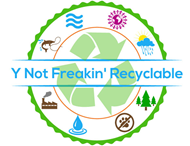MORE OF KNOWLEDGEABLE TV VIDEOS
Glacier national Park and global warming :https://youtu.be/J2TID7I0hsI
January: Deloitte published a report forecasting that failing to take sufficient action on climate change could result in economic losses to the US economy of $14.5 trillion(in present-value terms) over the next 50 years, and that decarbonization could catalyze transformational growth in the US economy that could result in $3 trillion added to the economy over that time period.
1 February: a study published in PLOS Climate projected a decline in global thermal refugia for coral reefs from 84% (2022) to 0.2% (at 1.5 °C of global warming), and 0% (at 2.0 °C of global warming), stating that management efforts on thermal refugia may only be effective in the short term.
15 February: NOAA’s Global and Regional Sea Level Rise Scenarios said that relative sea level along the contiguous U.S. coastline is expected to rise on average as much over the next 30 years-25 to 30 centimetres (9.8 to 11.8 in)-as it has over the preceding 100 years.
23 February: the United Nations Environment Programme projected that climate change and land-use change will make wildfires more frequent and intense, with a global increase of extreme fires of up to 14% by 2030, 30% by 2050, and 50% by 2100.
30 March: an American Lung Association report stated that a national shift to 100 percent sales of zero-emission passenger vehicles (by 2035) and medium- and heavy-duty trucks (by 2040), coupled with renewable electricity, would generate over $1.2 trillion in public health benefits and avoid up to 110,000 premature deaths.
28 April: a study published in Science cited ocean warming and oxygen depletion, and concluded that “under business-as-usual global temperature increases, marine systems are likely to experience mass extinctions on par with past great extinctions based on ecophysiological limits alone”, with polar species at highest risk.
9 May: a World Meteorological Organization update stated that there is a 50:50 chance of the annual average global temperature temporarily reaching 1.5 °C above pre-industrial level for at least one of the ensuing five years; in 2015 that probability was estimated as “close to zero”.
16 May: a study published in GeoHealth concluded that eliminating energy-related fossil fuel emissions in the United States would prevent 46,900–59,400 premature deaths each year and provide $537–$678 billion in benefits from avoided PM2.5-related illness and death.
20 May: a study published in One Earth concluded that rising temperatures will continue to shorten sleep, primarily through delayed onset, increasing the probability of insufficient sleep and impacting human functioning, productivity, and health.Those living in warmer climates were found to lose more sleep per degree of temperature rise, and elderly, women, with residents of lower-income countries being most impacted.
12 August: a study published in Science Advances stated that climate-caused changes in atmospheric rivers affecting California has already doubled the likelihood of megafloods-which can involve 100 inches (250 cm) of rain and/or melted snow in the mountains per month, or 25 to 34 feet (7.6 to 10.4 m) of snow in the Sierra Nevada-and runoff in a future extreme storm scenario is predicted to be 200 to 400% greater than historical values in the Sierra Nevada.
25 August: a study published in Communications Earth & Environment projected that, even if global warming is constrained to within 2.0 °C, by 2100 the “extremely dangerous”[Note 2] heat index threshold 124 °F (51 °C) is likely to be exceeded on more than 15 days each year in sub-Saharan Africa, parts of the Arabian peninsula, and much of the Indian subcontinent. Exposure to “dangerous” (exceeding 103 °F (39 °C)) heat index levels are projected to likely increase by 50–100% across much of the tropics and increase by a factor of 3–10 in many regions throughout the midlatitudes.
29 August: a study published in Nature Climate Change projected, based on 2000–2019 climatology, that 3.3% of the Greenland ice sheet will melt, resulting in 274 millimetres (10.8 in) of global sea level rise-with “most” of the rise within the 21st century-regardless of how well greenhouse gas release is limited.
global warming documentary
global warming 2022 documentary
Climate Change Documentary
Climate Change 2022 documentary
global warming documentary 4k
#knowledgeabletv
#globalwarmingdocumentary
#climatechang2022documentary
source
 Pollution Climate Change Holocene Deforestation Population Acidification Y Not Freakin' Recyclable
Pollution Climate Change Holocene Deforestation Population Acidification Y Not Freakin' Recyclable



